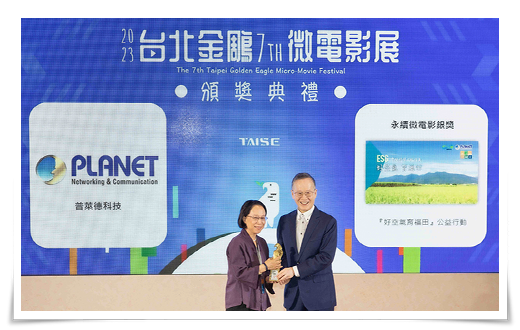Sustainable Society
◆ Pinglin Organic Tea Plantation【Protection of Water Sources】
Cooperation partner: Tse-Xin Organic Agriculture Foundation

PLANET has been cooperating with the Tse-Xin Organic Agriculture Foundation since 2010, and has been promoting the cultivation of Pinglin Organic Tea Plantation Project for 15 consecutive years in order to eliminate the use of toxic substances such as pesticides and chemical fertilizers in tea farms, prevent them from flowing into the Feicui Reservoir, ensure the cleanliness of water quality and protect many precious ecosystems in the water source area. Organic farming also reduces carbon emissions and helps mitigate climate change.
Protect water sources • reduce carbon emissions • preserve ecology
Pinglin tea farms are an important catchment area of Feicui Reservoir, which provides drinking water for about 6 million people in greater Taipei, so its importance is self-evident. PLANET encourages farmers to switch to organic farming and subsidizes farmers for their organic fertilizers, ensures the acquisition of tea, actively protects the ecology and conserves specific species.
Employee adoption • expansion of influence
PLANET has been calling on employees to participate together for many years, with a total of 1,093 cultivators over the past 15 years. In 2023, the employee cultivation participation rate reached as high as 91%, consolidating the employees’ centripetal force of environment sustainability.
◆ Clean Air, Clear Mind Action【Clean Air】
Cooperation partner: International Nature Restoration Action Association

Reduce air pollution • reduce carbon emissions • cultivate fertile fields
Rice is the most important food crop in Taiwan, with a planting area of approximately 260,000 hectares and producing approximately 1.41 million tons of rice straws. The air pollution and greenhouse gas emissions caused by burning rice straws every year have a significant impact on the environment.
In 2021, PLANET cooperated with the International Nature Restoration Action Association in developing the "Clean air, Clear mind action" project, which aims to solve the problem of burning rice straws through the use of rice straw decomposing bacteria. PLANET integrates the power of the enterprise side, executions and coordination with the association and combines with government units to jointly exert positive social influence. PLANET also filmed documentaries throughout the entire process to influence more people using the power of imagery.
Drive the supply chain partners to create a better society together • expand influence
In 2022, PLANET took the lead in investing and leveraging its corporate influence by calling on 77 enterprises and 11 individuals in Taiwan in conjunction with environmental organizations and government units to receive support and participation from 10,616 farmers.
In 2023, PLANET continued to connect its supply chain partners to this project, responded by a total of 125 enterprises and 164 individuals from customers and suppliers to work together to leverage ESG's green influence, defend our right to breathe clean air, restore soil health and create a sustainable environment.
Experience education in edible agricultural products - From Place of Origin to Dining Table
Through "food agriculture education", PLANET aims to gain an understanding of local agriculture and the impact of agricultural and dietary practices on the ecological environment, enable companies and individuals involved in this project to personally step onto the land they support to experience the unique characteristics of farmers and the power brought by the land and better understand the significance of protecting the land.

The sustainability micro-movie "Clean Air, Clear Mind Action" won the Silver Award at the Taipei Golden Eagle Micro-movie Festival
The concept of the film is to narrate the origin and process of actions, hoping to convey positive forces through visual images and to use the temperature of the land to convey the protection of the environment, connect farmers and observe changes in the fields, and assist in solving farmers' farming problems. PLANET hopes to exert long-term positive influence through image dissemination, raise more people's attention to environmental sustainability issues and work with us to care about the land environment. Click to watch the micro movie.

◆ International Tree Planting【Forest protection and carbon reduction】
Cooperation partner: Danish customer EET

Since 2022, PLANET has cooperated with Danish client EET in planting trees for carbon reduction. 7,000 trees were planted in Madagascar on World Environment Day and Green Friday in 2022. From 2022 to 2023, a total of 21,000 trees were planted, resulting in a cumulative carbon reduction of 252 metric tons of CO2e.
The tree species is Ravintsara, a plant that grows in Madagascar. Planting and preserving local plants can help protect the local ecosystem. In addition, planting trees can help mitigate climate change and improve carbon absorption capacity. Finally, planting and processing rhizophora mucronata can provide employment opportunities for local residents, thereby promoting sustainable development of communities.